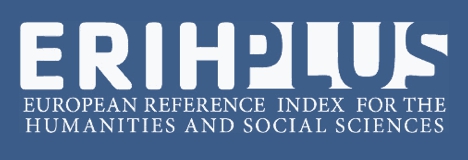ALLEGORY OF MOMO AS FRACTAL MAPS OF FRAGILE LATIN DEMOCRACIES
Abstract
The present study corresponds to a part of the project Symbolic Spaces of the Latin Carnival: Heritage Mapping of the Theatricality of Tourist Cities. The theme seeks an approach between geometric theory of fractals and the cognitive and conceptual mapping processes. It is intended to explore the possibilities of cultural analysis of allegories, such as scenic structures of carnival parades. The work brings together images from several South American countries in a comparative cultural approach. As the stages of the study show a recreation of faces of the figure of Rei Momo as a catalyst for collective creativity in several carnival cities in the continent. Firstly, by identifying cars and figures in fractal reading, after the conceptual indicators of power. Finally, it deepens comparative reflections regarding this theatricality in Momo's claims, in his South American national contexts.
References
BARROS, E. Maffesoli e a investigação do sentido: das identidades às identificações. Ciências Sociais Unisinos, São Leopoldo, v. 44, n. 3, p. 181-185, 2008. Disponível em:
CARNAVAL DE BARRANQUILLA S.A.S. Disponível em
CARNAVAL DE ORURO ACFO. Disponível em:
CARNAVAL DEL URUGUAY. Disponível em:
COLOM, A. J. A (des)construção do conhecimento pedagógico: novas perspectivas para a educação. Porto Alegre: Artmed. 2004
DAMASIO, F.; PEDUZZI, L. O. Q. O pior inimigo da ciência: procurando esclarecer questões polêmicas da epistemologia de Paul Feyerabend na formação de professores. Investigações em Ensino de Ciências. Porto Alegre, v. 20, n. 1, p. 97-126, 2008. Disponível em:
GOUVEA, F. R. Um estudo de fractais geométricos através de caleidoscópios e softwares de geometria dinâmica. 2005. v, 259 f. Dissertação (Mestrado em Educação Matemática) – Programa de Pós-Graduação em Educação Matemática, Instituto de Geociências e Ciências Exatas, Universidade Estadual Paulista, Rio Claro, 2005. Disponível em:
INTENDENCIA DE MONTEVIDEO. Historia del Carnaval. [Versão Eletrônica] Disponível em:
ISSMAEL, L. S. Cartografia Cognitiva: Um Instrumento de Espacialização de Informações Geográficas. 2008. 270p. Tese (Doutorado em Geografia) - Programa de Pós-graduação em Geografia, Instituto de Geociências, Universidade Federal do Rio de Janeiro, Rio de Janeiro, 2008.
LEITE, C. & PEREZ. Um carnaval fora da lista: quando a identidade é criada para o mercado. Textos escolhidos de cultura e arte populares. Rio de Janeiro, v. 7, n. 2, p. 97-108, 2010. Disponível em: < https://cutt.ly/SazjwEq > Acesso em 09 mar. 2020. http://dx.doi.org/10.12957/tecap.2010.12028
MARANDOLA, Hugo Leonardo; OLIVEIRA, Lívia de. Origens da paisagem em Augustin Berque: pensamento paisageiro e pensamento da paisagem / Landscape origins in Augustin Berque: landscaping thought and landscape thinking. Geograficidade, [S.l.], v. 8, n. 2, p. 139-148, nov. 2018. ISSN 2238-0205. Disponível em: https://periodicos.uff.br/geograficidade/article/view/13140 . Acesso em: 27 july 2020. doi: https://doi.org/10.22409/geograficidade2018.82.a13140 .
MARIA, Y.L. Paisagem: Cultura-Natureza em Perspectiva: Uma abordagem trajetiva do conceito de paisagem. Tese em Geografia Física da Universidade de São Paulo, defendida em 2016. Disponível em https://www.teses.usp.br/teses/disponiveis/8/8135/tde-06012017110558/publico/2016_YanciLadeiraMaria_VOrig.pdf Acesso em 20 de Jul. 2020.
MARIETTO, M.; SANCHES, C.; MEIRELLES, M. Chaos Theory: A Contribution to the Formation of Strategies. Iberoamerican Journal of Strategic Management (IJSM), North America, v. 10, n. 3, p. 66-93, 2011. Disponível em:
MARTINS, C. E. Tecnocracia como modo de produção. Revista de Administração de Empresas, São Paulo, v. 13, n. 3, p. 29-46, 1973. Disponível em: < https://rae.fgv.br/rae/vol13-num3-1973/tecnocracia-como-modo-producao>. Acesso em 08 Mar 2020. http://dx.doi.org/10.1590/S0034-75901973000300003
OKADA, A. Cartografia Investigativa: Interfaces epistemológicas comunicacionais para mapear conhecimento em projetos de pesquisa. Tese (Doutorado em Educação) - Programa de Pós-graduação em Educação, Pontifícia Universidade Católica de São Paulo, São Paulo, 2006.
OLIVEIRA, C. D. M. de. Festas Religiosas, Santuários Naturais e Vetores de Lugares Simbólicos. Revista da ANPEGE, [S.l.], v. 7, n. 08, p. 93-106, jul. 2017. ISSN 1679-768X. Disponível em:
OLINDA, PREFEITURA MUNICIPAL DE. Disponível em
Recife faz o maior Carnaval da história com recorde de 2 milhões de foliões. CARNAVAL DE RECIFE 2020, 2020. Disponível em:
RECIFE, PREFEITURA MUNICIPAL DO. Disponível em
RODRIGUES, T. Criando Fractais através de softwares e materiais concretos. Bauru, 2015. Disponível em:
SALAZAR, R. D. (2015) Carnaval de Barranquilla o la confluencia de historias. Agenda Cultural: Alma Máter, Medellín, v. 217, p. 10-11, 2015. Disponível em:
SERPA, A. Por uma Geografia dos espaços vividos: Geografia e Fenomenologia. 1. ed. São Paulo: Contexto. 2019.
VIDART, D. Tiempo de Carnaval. Montevideo: Ediciones B Uruguai S.A., 2014.

This work is licensed under a Creative Commons Attribution-NonCommercial 4.0 International License.
Policy Proposal for Free Access Journals
Authors who publish in this journal agree to the following terms:
a. Authors retain the copyright and grant the journal the right of first publication, with the work simultaneously licensed under the Creative Commons Attribution License which allows the sharing of the work with acknowledgment of the authorship of the work and initial publication in this journal.
b. Authors are authorized to take additional contracts separately, for non-exclusive distribution of the version of the work published in this journal (eg publish in institutional repository or as a book chapter), with acknowledgment of authorship and initial publication in this journal.
c. Authors are allowed and encouraged to publish and distribute their work online (eg in institutional repositories or on their personal page) at any point before or during the editorial process, as this can generate productive changes, as well as increase the impact and The citation of published work (See The Effect of Free Access).





















